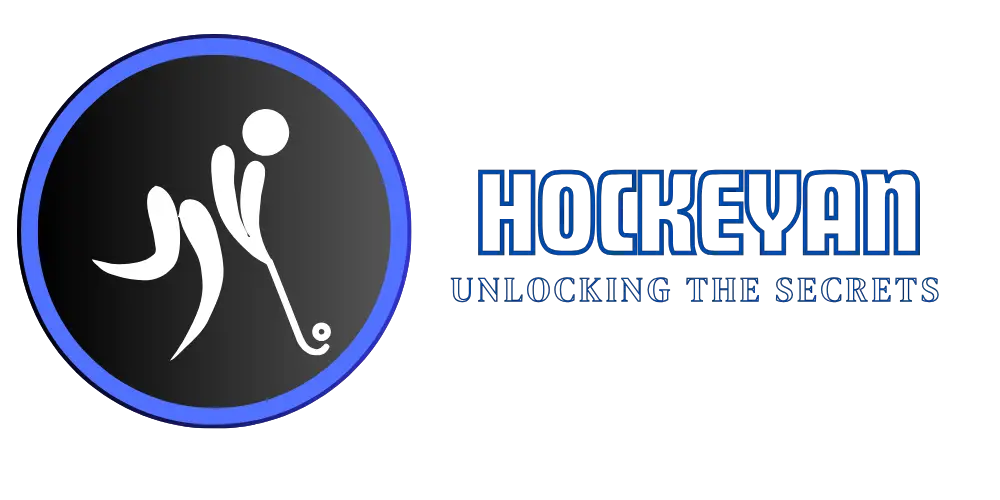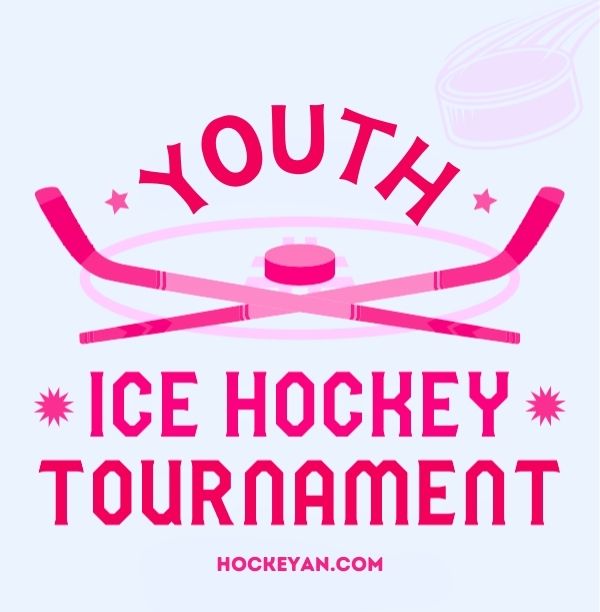Youth ice hockey tournaments provide young athletes with competitive opportunities to showcase their skills. These events foster sportsmanship and team spirit.
Youth ice hockey tournaments are essential for young players. They offer a platform for skill development and team bonding. These tournaments often feature teams from various regions, creating a diverse competitive environment. Participants gain valuable experience, learning both on and off the ice.
Coaches and scouts frequently attend these events, providing exposure and potential advancement opportunities for talented players. Parents and families also play a crucial role in offering support and encouragement. The tournaments help instill important life lessons, such as discipline, perseverance, and teamwork. Overall, youth ice hockey tournaments are a vital part of a young athlete’s growth and development.
Introduction To Youth Ice Hockey Tournaments
Youth ice hockey tournaments bring young players together. These thrilling events create lasting memories, and kids learn teamwork and sportsmanship on the ice.
The Excitement Of Competition
Young players love the thrill of competition. Tournaments provide a stage to showcase their skills. Each game is a chance to improve and grow. The crowd’s cheers boost their confidence. Winning a game brings immense joy. Even losing teaches valuable lessons.
Building Team Spirit
Ice hockey tournaments strengthen team spirit. Players bond during practice and games, supporting each other through wins and losses. Teamwork is key on the ice. Trust and cooperation develop naturally. Friendships formed here often last a lifetime.
Credit: myhockeytournaments.com
Choosing The Right Tournament
Choosing the right youth ice hockey tournament is crucial. It ensures a rewarding and exciting experience for young players. Understanding key factors can help in making an informed decision.
Factors To Consider
Several factors play a role in selecting the best tournament. Below are some important considerations:
- Location: The tournament’s location should be convenient and accessible.
- Age and Skill Level: Ensure the tournament matches the age and skill level of the players.
- Duration: Check how long the tournament lasts. Shorter tournaments might be easier to manage.
- Competition Level: Look for tournaments that offer a good level of competition. It should challenge the players but not overwhelm them.
- Cost: Evaluate the costs involved, including entry fees, travel, and accommodation.
Researching The Best Options
Thorough research is essential to find the best tournaments. Here are some tips:
- Online Reviews: Read reviews and feedback from other teams and parents. Websites and social media provide valuable insights.
- Ask for Recommendations: Talk to coaches, other parents, and players. They can share their experiences and suggest good tournaments.
- Check Official Websites: Visit the tournament’s official website. There, you can find details about rules, schedules, and past events.
- Contact Organizers: If you have any questions, please feel free to contact the tournament organizers. Clear communication helps people understand what to expect.
By considering these factors and doing proper research, you can choose the right tournament. It will be a memorable experience for young hockey players.
Preparing Your Team For Success
Preparing your youth ice hockey team for a tournament is a big task. It requires careful planning and hard work. This section will guide you through the key steps. Focus on training and conditioning and team strategies and plays. These are the foundations of a successful team.
Training And Conditioning
Training and conditioning are crucial for your team’s success. Strong players need stamina and strength. Here are some key exercises:
- Cardio Workouts: Running, cycling, or swimming to build endurance.
- Strength Training: Weight lifting and resistance exercises for muscle power.
- Flexibility Exercises: Stretching and yoga to prevent injuries.
Could you set a daily routine for these exercises? This ensures players are fit and ready.
| Day | Cardio | Strength | Flexibility |
|---|---|---|---|
| Monday | 30 mins running | Upper body | 15 mins stretching |
| Wednesday | 30 mins cycling | Lower body | 15 mins yoga |
| Friday | 30 mins swimming | Full body | 15 mins stretching |
Team Strategies And Plays
Good strategies and plays win games. Teach your team these essential plays:
- Offensive Plays: Work on passing and shooting drills. Teach them to move quickly and find open spaces.
- Defensive Plays: Focus on blocking shots and maintaining positions. Could you make sure each player knows their role?
- Special Teams: Practice power plays and penalty kills. These situations can turn the game in your favour.
Hold regular practice sessions. This helps players understand and execute these strategies well.
Video analysis can also be helpful. Could you record games and review them with your team? Could you point out both good moves and mistakes? This visual feedback is effective for learning.
Essential Gear And Equipment
Youth ice hockey tournaments demand the right gear and equipment. Ensuring players have the essential items and protective gear is vital. This section covers what you need to know.
Must-have Items
Every young player needs specific gear. Here’s a list of must-have items:
- Hockey Stick: Choose the right size and flex for better control.
- Skates: Ensure they fit well and are properly sharpened.
- Helmet: Should fit snugly and come with a face cage.
- Hockey Gloves: Protect hands and wrists while allowing mobility.
- Hockey Pants: Provide padding for hips, thighs, and tailbone.
These items ensure players perform well and stay comfortable on the ice.
Safety First: Protective Gear
Keeping young players safe is crucial. Here’s the essential protective gear:
| Item | Purpose |
|---|---|
| Helmet | Protects the head from injuries. |
| Mouth Guard | Shields teeth and jaw from impacts. |
| Shoulder Pads | Guards shoulders, chest, and upper back. |
| Elbow Pads | Protect elbows and lower arms. |
| Shin Guards | Shield shins and knees from pucks and falls. |
| Neck Guard | Protects the neck from sticks and pucks. |
Wearing the right protective gear helps prevent injuries and keeps players safe.
Nutrition And Hydration For Young Athletes
Proper nutrition and hydration are critical for young ice hockey players. They help maintain energy levels and performance. Youth tournaments demand intense physical exertion. Therefore, a balanced diet and adequate hydration are key.
Fueling Performance
To perform well, young athletes need a mix of carbohydrates, proteins, and fats. Carbohydrates provide quick energy. Good sources include:
- Whole grain bread
- Brown rice
- Fruits
Protein helps in muscle repair and growth. Include the following in their diet:
- Lean meats
- Beans
- Eggs
Healthy fats are also essential. They offer long-lasting energy. Foods rich in healthy fats are:
- Avocados
- Nuts
- Olive oil
Before a game, a balanced meal is crucial. This should be consumed 2-3 hours before playing. A good pre-game meal might include:
| Food Item | Portion Size |
|---|---|
| Grilled chicken breast | 100 grams |
| Quinoa | 1 cup |
| Steamed broccoli | 1 cup |
Hydration Strategies
Staying hydrated is crucial for peak performance. Dehydration can lead to fatigue and poor concentration. Athletes should drink water throughout the day. Here are some key points:
- Drink water before, during, and after games.
- Avoid sugary drinks; they can cause energy crashes.
- Include electrolytes for longer play periods.
A good rule of thumb is to drink 8 ounces of water every 20 minutes during games. Sports drinks can be useful. They replenish lost electrolytes but use them wisely. They should only partially replace water.
Monitoring urine colour can help gauge hydration levels. Clear or light-coloured urine indicates proper hydration, while dark ,” yellow urine suggests more fluids are needed.
By focusing on both nutrition and hydration, young athletes can perform their best. This will help them enjoy the sport and stay healthy.
Credit: triblive.com
The Mental Game: Psychological Preparation
In youth ice hockey tournaments, mental preparation is as crucial as physical training. Players need to build confidence and manage competition pressure. This mental strength helps players perform their best.
Building Confidence
Confidence is key in youth ice hockey. Coaches and parents play a big role in this. They should offer positive feedback and encouragement.
- Celebrate small victories
- Focus on strengths
- Set achievable goals
Players can also use visualization techniques. Imagining successful plays helps build confidence. Another useful method is positive self-talk.
“I can do this!”
Repeating such phrases boosts self-belief. Mental rehearsal of game scenarios is also helpful.
Coping With Competition Pressure
Pressure is part of any competition. Learning to manage it is important. Deep breathing exercises can help calm nerves.
1. Breathe in for 4 seconds
2. Hold your breath for 4 seconds
3. Exhale for 4 seconds
Players should also practice mindfulness. Staying present in the moment reduces anxiety.
| Technique | Benefit |
|---|---|
| Deep Breathing | Reduces stress |
| Visualization | Builds confidence |
| Positive Self-Talk | Boosts morale |
Players should also focus on effort, not just outcomes. This mindset helps them stay motivated.
Travel Tips For Away Tournaments
Youth ice hockey tournaments are exciting and fun. Traveling to away games can also be a great adventure. But, it needs some planning. Good preparation ensures a smooth and enjoyable experience.
Planning And Logistics
Good planning makes travel stress-free. Create a checklist of important items. This will help you remember everything. Pack all hockey gear, travel documents, and essentials.
Choose a reliable mode of transport. Consider the distance and number of team members. Renting a bus might be a good option. It keeps everyone together and makes travel easy.
Book accommodations in advance. Look for places close to the venue. This saves time and reduces travel stress. Ensure the hotel has amenities like breakfast and free Wi-Fi.
Coordinate with parents and guardians. Share the travel plan and itinerary. This keeps everyone informed and prepared. Use a group chat for quick updates and changes.
| Item | Details |
|---|---|
| Hockey Gear | Helmet, pads, skates, stick |
| Travel Documents | ID, tickets, itinerary |
| Essentials | Clothes, toiletries, snacks |
Keeping The Team Focused And Entertained
Plan team activities to keep spirits high. Play fun games during the journey. This helps build team spirit and keeps everyone engaged.
Schedule rest breaks. Long trips can be tiring. Regular breaks help players stay fresh and focused. Use these breaks for light snacks and hydration.
Prepare a team playlist. Music can uplift moods and create a fun atmosphere. Let team members suggest their favorite songs.
Encourage team bonding. Use travel time for team discussions and strategies. This helps in better coordination during the games.
- Play card games
- Watch movies
- Share travel stories
Celebrating Success And Handling Defeat
Youth ice hockey tournaments are thrilling events. They bring out the best and sometimes the worst in young athletes. Celebrating success and handling defeat are crucial lessons. These experiences shape their character both on and off the ice. Let’s explore how to foster sportsmanship and learn from experiences.
Fostering Sportsmanship
Sportsmanship is key in youth ice hockey. It teaches respect for others. Players learn to appreciate the efforts of their teammates and opponents. Celebrate goals and victories with humility. Support fellow players even during tough times. Coaches and parents play a vital role here. They should lead by example, showing respect and kindness to all.
- Congratulate opponents after a game
- Thank referees and officials
- Encourage teammates constantly
- Stay positive, win or lose
Learning From Experience
Every game is a learning opportunity. Success and failure both offer valuable lessons. Celebrate small victories and analyze mistakes. This helps players grow and improve. Coaches should provide constructive feedback. Highlight what went well and areas to work on.
| Scenario | Lesson |
|---|---|
| Winning a game | Build confidence and teamwork |
| Losing a game | Identify weaknesses and improve skills |
| Scoring a goal | Understand the importance of strategy |
| Missing a goal | Learn resilience and perseverance |
Parents should support their children in both scenarios. Encourage a positive attitude. Celebrate their efforts and hard work.
Credit: showdowntournaments.com
Frequently Asked Questions
What Age Groups Play In Youth Ice Hockey Tournaments?
Youth ice hockey tournaments typically include age groups from under-8 to under-18. These age groups are divided to ensure fair play and competition.
How Can My Child Join A Youth Ice Hockey Tournament?
To join, contact local hockey clubs or organizations. They often have information on upcoming tournaments and registration details.
What Equipment Is Needed For Youth Ice Hockey?
Essential equipment includes skates, helmet, gloves, pads, and a stick. Proper gear ensures safety and optimal performance on the ice.
Are Youth Ice Hockey Tournaments Safe?
Yes, they are generally safe. Tournaments follow strict safety guidelines and require players to wear appropriate protective gear.
Conclusion
Youth ice hockey tournaments offer thrilling experiences and foster teamwork. These events build skills and create lifelong memories. Participating in such tournaments can enhance young players’ passion for the sport. Engaging in competitive play helps develop resilience and sportsmanship. Encourage your youth to join and experience the excitement of ice hockey tournaments.







